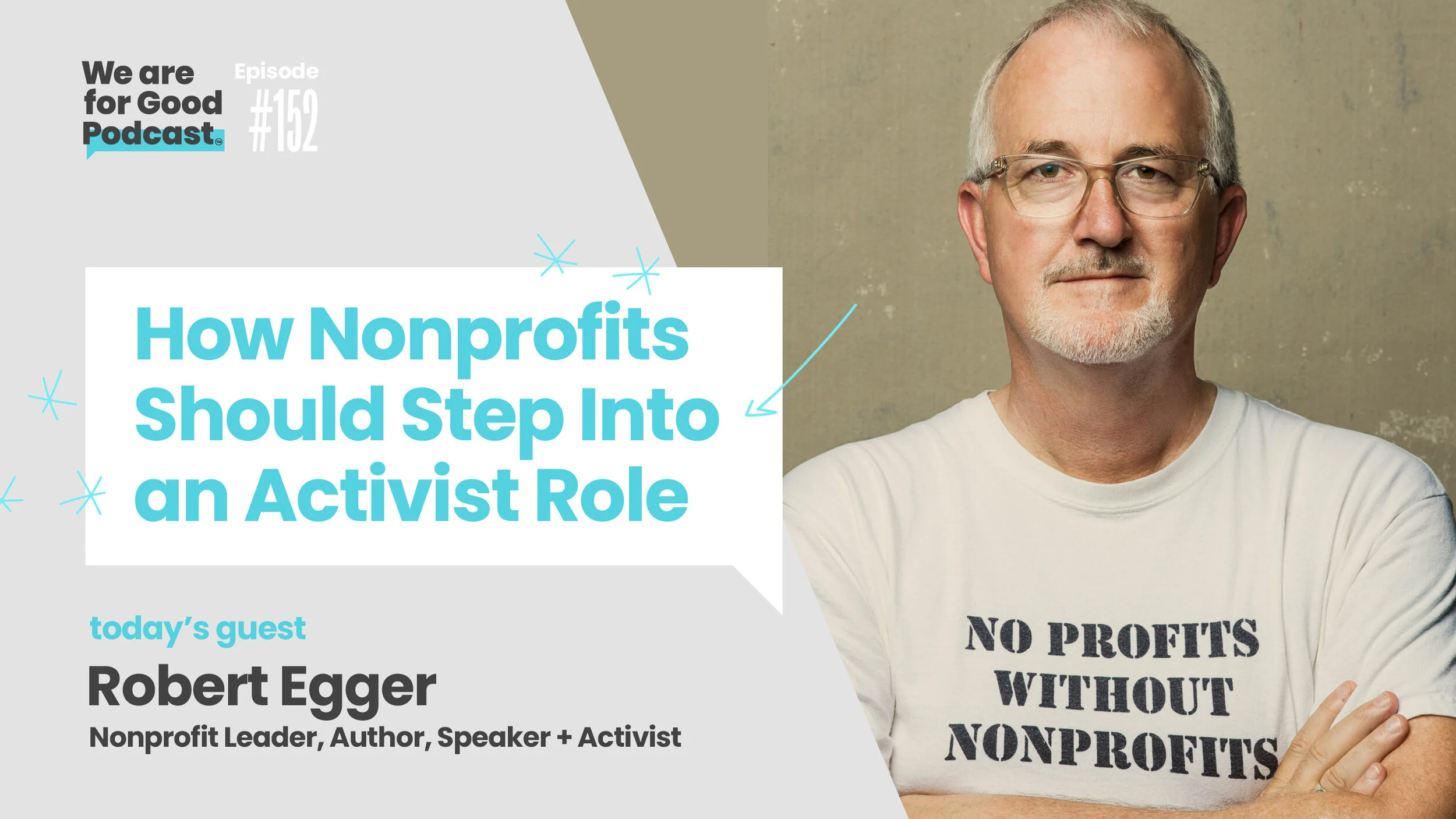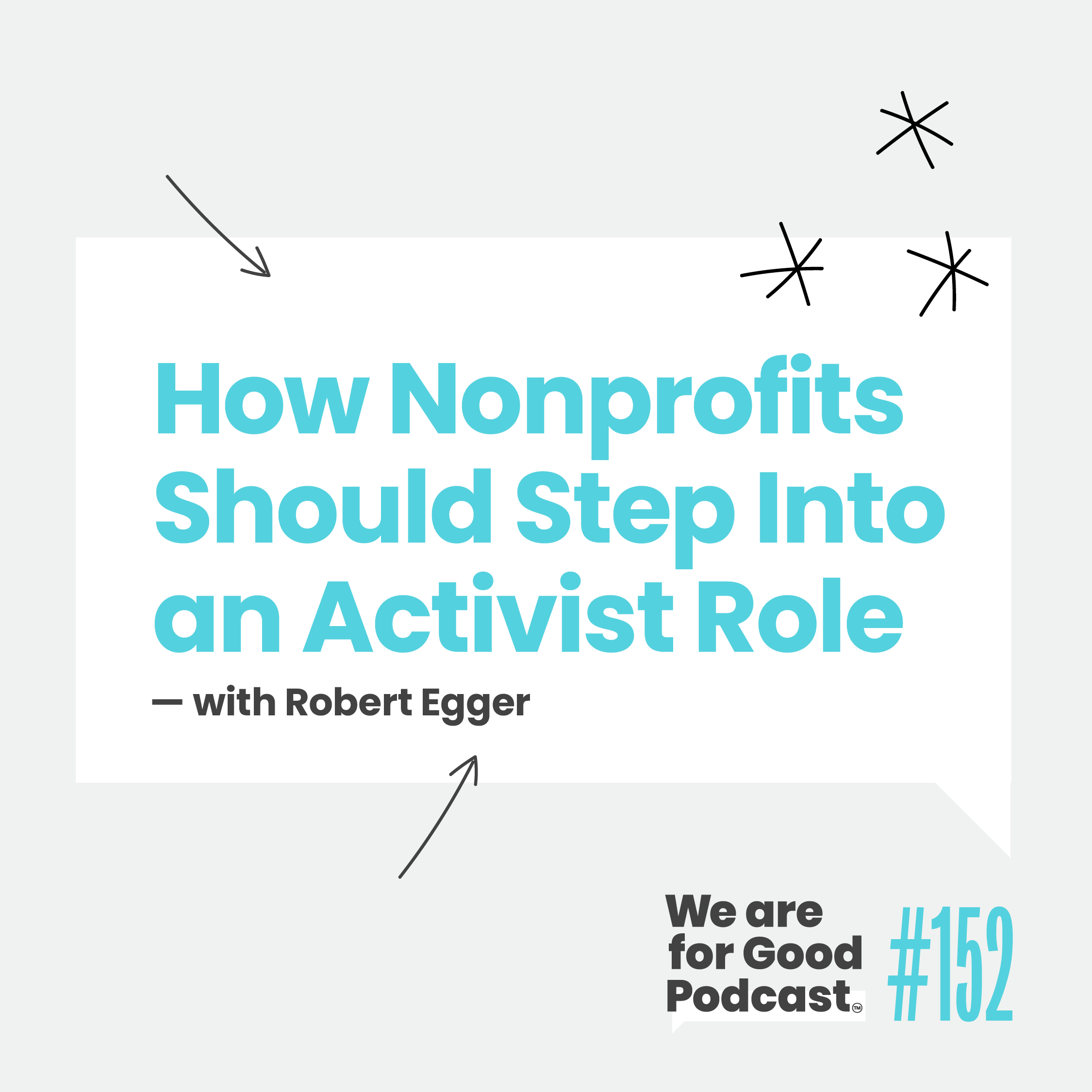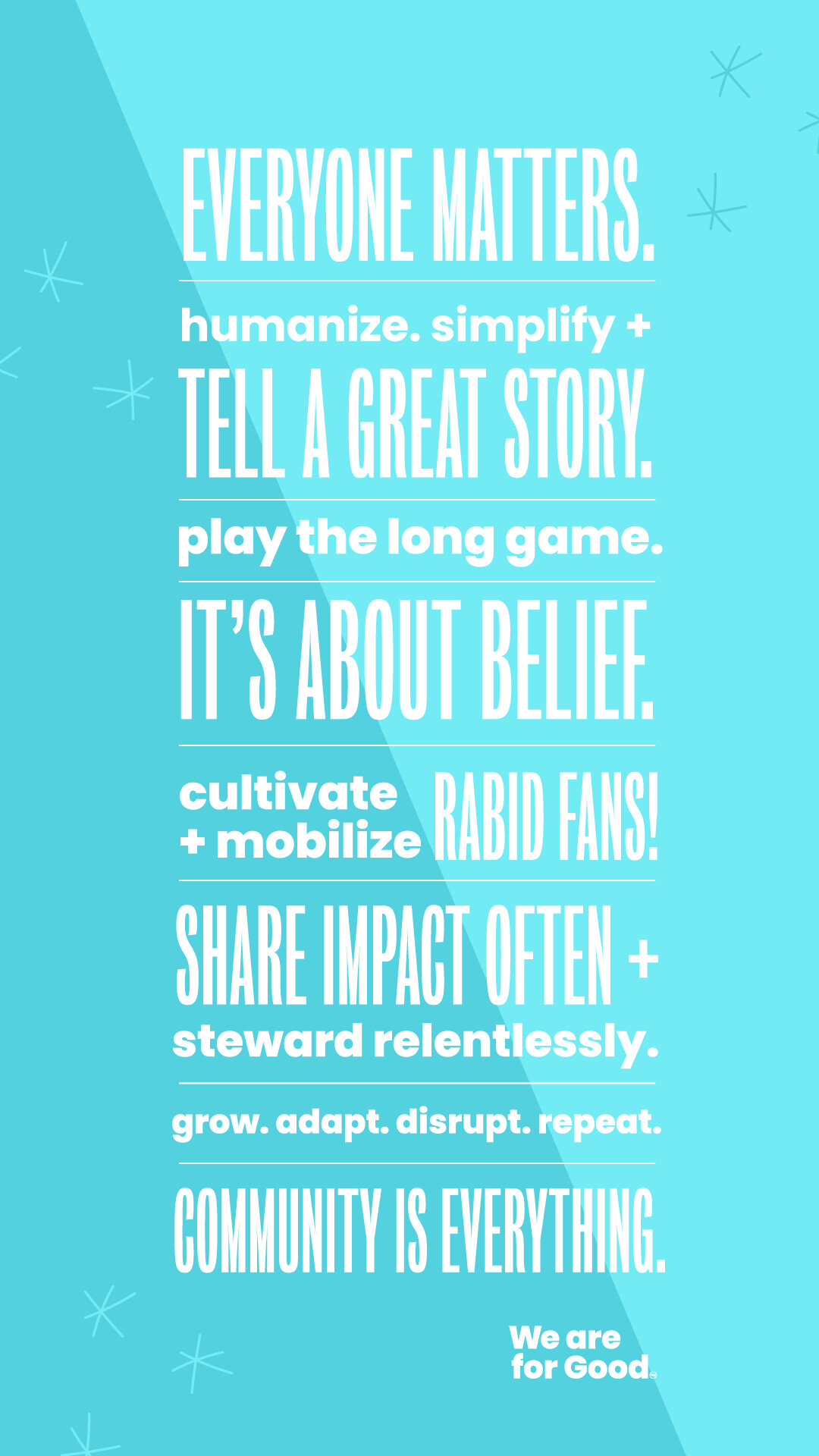152. How Nonprofits Should Step Into an Activist Role - Robert Egger
Listen to this episode
Overview
Meet Robert. This nonprofit leader, entrepreneur, author, speaker and activist is a passionate proponent of social good. In fact, he's the founder of D.C. Central Kitchen, the Campus Kitchen Project and the L.A. Kitchen, which have collectively produced over 40 million meals and helped over 2,000 individuals attain jobs. He's talking about the economics of nonprofit (Spoiler: we're REALLY good for business) and sharing why activism matters to the sector. Bottom line: you don’t have to choose between making good and making a living.
Today’s Guest
Robert Egger, Founder, DC Central Kitchen and L.A. Kitchen, Author, and Activist
“We are the third biggest employer in America, we have $3 trillion in assets, $350 billion in annual revenue and 60 million volunteers. Yet, when was the last time you’ve heard any candidate, and even in a presidential campaign, talk about how they’re going to help the economy of America grow without mentioning their third biggest employer?”
Episode Transcript
Download Full Episode Transcript Here
Episode Highlights
Robert’s story and journey to where he is today (3:00)
The founding story of the DC Central Kitchen (6:17)
Robert’s advice for nonprofits to embrace change, challenge the status quo, and be open to new ideas (7:47)
The founding story of the LA Kitchen (13:00)
“There is no profit without nonprofits.” - Robert’s philosophy on the economics of nonprofits (23:30)
What Robert is paying attention to for the future of the nonprofit sector (30:00)
How nonprofits should step into an activist role (32:00)
A powerful moment of philanthropy in Robert’s life (42:30)
Robert’s One Good Thing: If you chase money, you'll run forever. If you chase result money will come to you. (44:00)
Powerful quotes
“This theme that's been part of my career ever since, which is that I kind of witnessed a very historic and traditional model, but it was based more on the redemption of the giver, not the liberation of the receiver. And I can think of Wow, there's got to be a way to kind of flip this a little bit.” -Robert
“So the DC kitchen was born, because no one else would do it.” -Robert
“You know I was, on many occasions, not the highest paid employee in the businesses I ran. Where is it written that the CEO has to be the highest paid person if other people have different circumstances than I do?” -Robert
“So I've always been fascinated by how do I level it, not only in the broader kind of playing field, that is my business, but also again, that idea of my own personal leadership and not getting lost, or forgetting the benefits I had?” -Robert
“I have a long history of going into places where I assume people will say, “Where have you been all my life?”, only to have them say in effect, “We’re happy with the status quo.” -Robert
“So a lot of the work now I do is trying to help food programs work with their city councils or legislators to change their procurement policies. So that it's an even playing field because I think nonprofits again, if I'm a mayor of any town, and you told me there's a business in which they will only reinvest profit back in the city. I want to know who, what, where and when, because I want to do business with them.” -Robert
“We are the third biggest employer in America, we have $3 trillion in assets, $350 billion in annual revenue and 60 million volunteers. Yet, when was the last time you've heard any candidate, and even in a presidential campaign, talk about how they're going to help the economy of America grow without mentioning their third biggest employer?” -Robert
“I wondered for the longest time about why did the sector behave the way we did? Why are we lethargic? Why do we sit on the sidelines? Why do we accept these rules that say, you can't be involved this way, but for profit businesses can?” -Robert
“As long as we [nonprofits] fight each other for scraps off the table, and we don't see our common goal or common ethos, or common vision, we're going to be servants in the field of America.” -Robert
“When the nonprofit sector went from about 60,000, nonprofits in the mid 60s, to like 1.4 million in 30 years, and that happens to coincide with the time in which women went from 19% of the workforce to over 50%.” -Robert
“And those women were pushed into this sector. And they took with them all of their enthusiasm, all of their energy and their caring and idealism and created the modern nonprofit sector. But we must be liberated.” -Robert
“I'm very interested in how you elect a generation of mayors, governors, a president who sees that we are a dynamic and a central part of the American economy, and gives us the resources, the respect and the opportunities, we seek to escape the kind of bondage of philanthropy and really thrive in every city in America.” -Robert
“Think about this, Bob Dylan just turned 80 that's the face of our elders. It's people who went to Woodstock. It's women who fought for equal rights. It's people who marched with Cesar Chavez and Dr. King. It's people who danced on Soul Train. So the idea of saying there's a generation of people who happen to be, through better for better or worse, the richest, freest most educated generation in the history of the world. Do we really want to just watch them wither on the vine, or do we want to realize there is wine left in those grapes?” -Robert
“We don't have any say in the political process that oftentimes changes the landscape in which we have to raise money, and obviously try and make a difference.” -Robert
Connect with Robert
LinkedIn / Email / Twitter / Instagram / Book
Rate, Review, & Follow on Apple Podcasts
Are you a fan of the We Are For Good Podcast? Please consider rating and reviewing our show! This helps us serve more do-gooders — just like you — grow their own impact uprising.
First time doing reviewing a podcast? Don’t sweat - it’s super easy! Click here, scroll to the bottom, tap to rate the show with stars, and then click “Write a Review.” We’d love to hear what you loved most about this episode!
While you’re there, if you haven’t done so already, would you consider subscribing to the podcast? We curate inspiring conversations weekly to help you do more for your mission (and the occasional surprise minisode too!) and if you’re not subscribed, you could totally out. Subscribe now!
Join the Good Community!
The We are for good community
This is a safe place for deeper conversations. While we love this podcast, it is a very one-sided dialogue. It is great for starting conversations, but not continuing them. You can find friends, colleagues, and others to champion alongside. We believe community is everything and we wanted to create a place where people could learn and thrive and grow together (and also have a whole lot of fun).
About our Sponsor Givebutter
Givebutter is Loved by over 30,000 nonprofits, student groups, sports teams, schools, companies, and individuals just like you, and PS: it’s also loved by the three of us who are superfans of their incredible giving platform. 💛
Givebutter helps you collect donations like a boss. It's never been easier to add a donate button to your website, collect dues from group members, or link a payment form to just about anything.
Re-think the way you run fundraising events. Sell tickets to your event while also collecting additional donations from attendees and supporters, with all of Givebutter's unique fundraising features built right on top. It’s buttery goodness at its finest, and it’s helping you do more for your mission online. Learn more at givebutter.com.
Watch the full Family Reach story mentioned in the midroll below! 🎉











